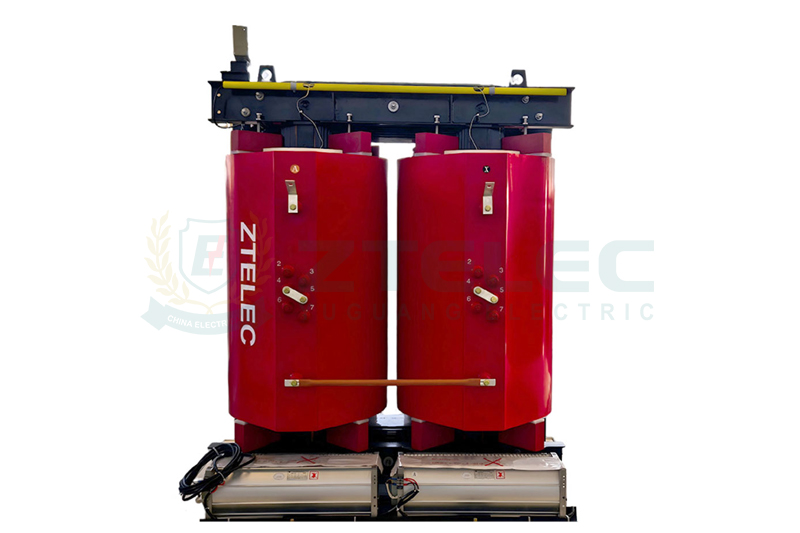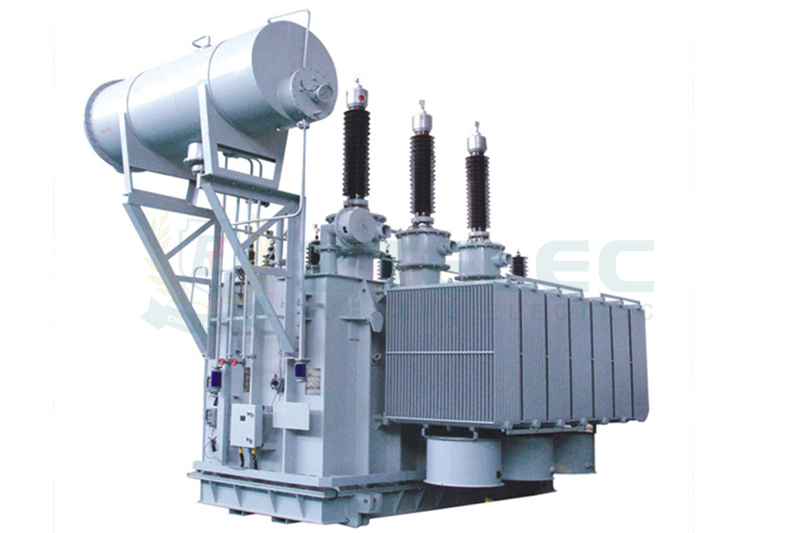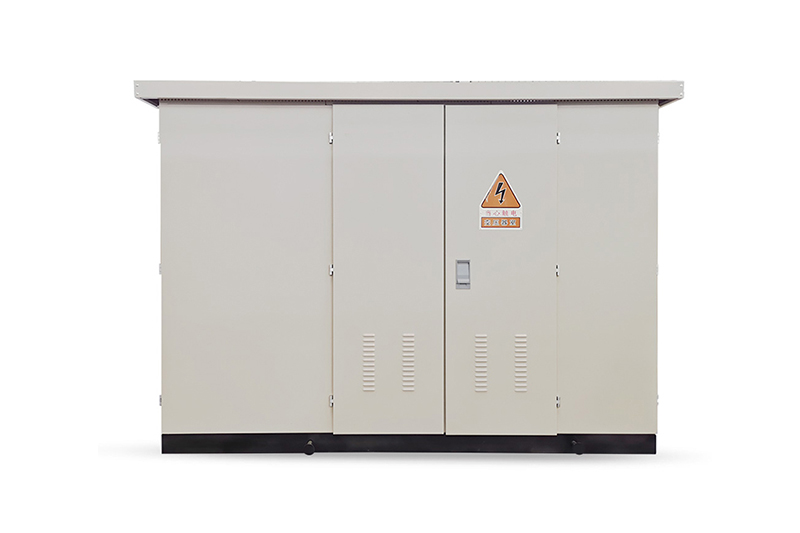A Complete Analysis of Three-Phase Dry-Type Isolation Transformer Prices, Models, and Selection Guide
Time:2025-09-25 Auther:ZTelec-www.ztelectransformer.com
In modern industrial power systems and equipment control circuits, the three-phase dry-type isolation transformer is a critical device for electrical isolation and reliable voltage conversion. Proper selection directly determines the stability of the power supply and the safety of industrial equipment. This article provides a detailed analysis of transformer prices, mainstream models, and practical selection strategies to help buyers and engineers make informed decisions.
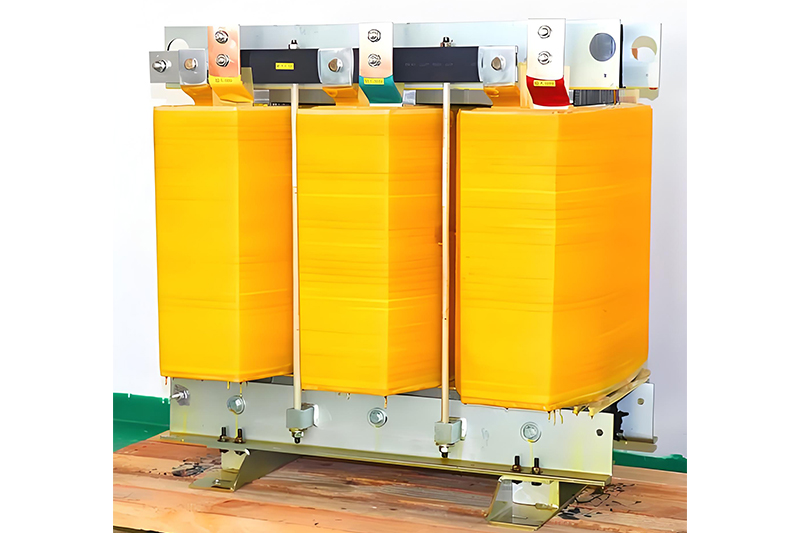
1. Price Range and Influencing Factors
The cost of a three-phase dry-type isolation transformer varies depending on capacity, voltage, brand, and customization requirements. Below is the typical price distribution:
Small transformers (3kVA–10kVA): 300–3,000 yuan. Commonly used in laboratories, CNC control panels, and small automation equipment.
Medium transformers (15kVA–100kVA): 1,500–50,000 yuan. Suitable for machine tools, production lines, and medium industrial facilities.
Large transformers (above 100kVA): From tens of thousands to several hundred thousand yuan. Used in factories, photovoltaic energy storage systems, and power distribution projects.
Key factors affecting transformer prices:
• Capacity: Larger transformers require more copper, silicon steel, and insulation, increasing costs.
• Voltage level: High-voltage designs add 20%–50% to the price due to special insulation.
• Brand quality: Well-known transformer manufacturers offer better reliability but at higher costs.
• Customization: Non-standard voltages, IP54 protection, or explosion-proof designs can significantly raise prices.
2. Mainstream Models and Applications
Three-phase dry-type isolation transformers are typically marked with prefixes like SG or SBK, followed by their capacity and voltage ratings. Below are common models:
SG-5KVA: 5kVA, 380V/220V/200V – Used in small CNC machines and laboratory instruments.
SG-50KVA: 50kVA, 380V/400V/415V – Ideal for industrial automation and factory power supply.
SBK-100KVA: 100kVA, 660V/1140V to 380V – Suitable for mining machinery and heavy-duty motors.
SG-200KVA: 200kVA, 480V/690V to 400V – Common in photovoltaic energy storage and data centers.
Custom Models (e.g., SG-400KVA): Flexible input/output voltage – Used in special voltage equipment and export projects.
Selection Recommendations
• Load matching: Rated transformer capacity should be 1.2–1.5 times the load.
• Voltage consistency: Input must match grid voltage; output must match device needs.
• Environmental adaptation: Use IP54 or higher for humid or dusty environments.
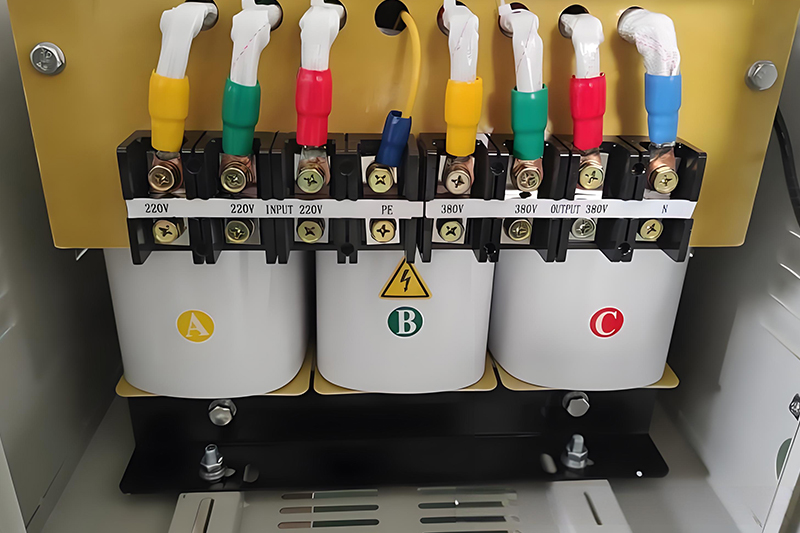
3. Core Selection Strategies
Step 1: Determine Transformer Capacity
Formula: Capacity (kVA) ≈ (Total Equipment Power kW ÷ Power Factor) × Simultaneity Factor × Safety Margin (1.1–1.2).
Simplified method: Add up equipment power and multiply by 1.2–1.5, then select the nearest standard capacity (e.g., 50kVA, 100kVA, 200kVA, 315kVA, 500kVA).
Tip: For loads with inverters or rectifiers, choose a higher-capacity transformer or a K-factor design.
Step 2: Define Input and Output Voltage
Input voltage: Based on the grid (e.g., 380V, 660V, 10kV).
Output voltage: Determined by equipment requirements (e.g., 220V, 380V, or custom).
Step 3: Consider Environment and Cooling
Protection rating: IP20 for indoor use; IP23–IP54 for outdoor or dusty environments.
Protective enclosure: Required for areas accessible to personnel.
Cooling method: Natural cooling (AN) for small sizes; forced air cooling (AF) for large transformers.
The three-phase dry-type isolation transformer is essential for safe, stable, and efficient industrial power distribution. Prices vary widely, depending on capacity, voltage, brand, and customization. When selecting, carefully calculate the required capacity, ensure correct input/output voltage matching, and choose the appropriate protection level for the installation environment. By following these guidelines, businesses can reduce operating costs, prevent equipment failures, and ensure long-term reliability of their power systems.

